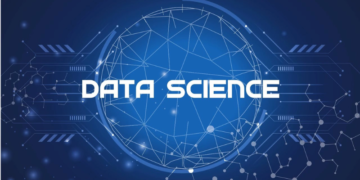Anyone even remotely connected to the world of tech can’t possibly deny the disruptions that artificial intelligence has effected on this landscape of late. Particularly after the emergence of generative AI (ChatGPT leading the discussion in that regard), the use cases of AI seem to have multiplied extraordinarily.
Naturally, small and big businesses alike have been more eager than ever to integrate AI into their day-to-day operations. For the former, the technology gives them a very realistic shot at leveling the playing field; for the latter, it gives them a scope to double down on their already towering presence in the market.
One of the many avenues that AI has promised to fortify for businesses is digital marketing and advertising. If leveraged right, AI can empower brands to realize their digital marketing campaigns and goals with an efficiency that was previously unimaginable. That said, like all disruptive technologies, AI, too, comes with its fair share of caveats. That’s why, in today’s blog, we aim to navigate the benefits and challenges of integrating AI into your digital marketing scheme. Read on to find out!
The Advantages
- Step up your content creation game: Over time, the number of digital marketing channels has amplified steadily; this trend is most likely to continue in the near future as well. In such a scenario, creating impactful content aligned with every platform’s unique algorithmic demands is an extremely challenging ask. This is where AI comes into the picture.
From email subject lines to SEO blog posts, generative AI tools such as ChatGPT and Writesonic can cater to your entire gamut of content requirements. With the help of these tools, content professionals can generate serviceable first drafts, which, if you come to think of it, are what set content creation journeys into motion. Subsequently, this can help digital marketing teams speed up their content delivery process and easily meet their goals.
- Deliver hyper-personalized experiences: One of the major reasons that makes AI so popular among digital marketers is its ability to process high volumes of data rather effortlessly. This makes it possible for them to gain an in-depth understanding of customer behavior and engagement patterns, subsequently gathering all that is necessary to deliver neatly targeted experiences. Every seasoned marketer is aware that at the heart of hyper-personalization lies rigorous segmentation; with AI in their armories, it becomes extremely convenient for marketers to prepare sophisticated and flexible segmentation frameworks.
- Enhance performance optimization: Such is the level of competition in the digital marketing arena at present, it is near-imperative for businesses to up their game with every subsequent campaign. This is only possible when you meticulously monitor your campaigns’ performances, identifying and addressing the shortcomings of the past to galvanize the future. AI tools allow you to evaluate the performance of your campaigns across relevant parameters, giving you access to a treasure trove of actionable insights in the process.
- Amplify your ROI: AI gives you access to a new vocabulary of digital marketing- one where the deployment of minimal resources can fetch you astounding results. Instantaneous content generation, automation of redundant activities, pointed consumer insights, and advanced performance monitoring metrics, all make it possible for you to claim the biggest cut of the revenue pie and comfortably outrun your competitors.
The Hurdles
- Unreliable quality of content: As proficient as generative AI tools are at producing large volumes of content in no time, more often than not, the quality of such content leaves a lot to be desired. AI content typically tends to be unoriginal, redundant, incoherent, and inaccurate. More critically, it lacks the creativity and emotional intelligence that a human mind is capable of and, thus, sounds highly one-dimensional and tedious.
Hence, it is vital that content generated by AI tools is first subjected to human intervention before putting it to use. After obtaining the first drafts, you must run them past a team of experienced content professionals so that they’re molded into something that actual human beings (your only audience at the end of the day!) would consider it worth their while.
- Presence of bias and hurtful stereotypes: AI models train themselves on diverse data sets. Data sets containing bias and inaccurate stereotypes are more frequent than you’d imagine; they end up imparting the same values to the models that train on them. As a result, the output generated by these models reflects the same as well, causing immense hurt and discontent to the communities that are at the receiving end of it. If you happen to make use of such content, you can cause irreparable damage to your brand reputation.
- Privacy scares: Collection and analysis of user data is at the core of AI-powered digital marketing. Now, if businesses aren’t downright transparent with their customers regarding using this data, it can foster deep mistrust in their minds. Data usage automatically invites multiple ethical concerns, and should they not be promptly addressed, you will lose the favor of your audience and find yourself in a lot of legal trouble.
Wrapping It Up
There’s no doubt that AI makes it possible for marketers to push the boundaries of digital marketing and advertising in increasingly radical ways. At the same time, it is crucial that businesses must not forsake their pragmatism in the face of AI’s endless possibilities. While leveraging the sophisticated capabilities of AI tools, marketers must also be mindful of the concerns their usage invites, and look to navigate them in such a way that is beneficial to both them and their customers.
With more and more digital marketing agencies looking to embrace AI to optimize their operations, we got in touch with our in-house experts to dive deep into the many ways in which agencies can make the most of the AI revolution. Their insights have now been integrated into our latest ebook- “Optimizing Deliverables, Efficiency, and Cost With AI”. Read it here!




















































